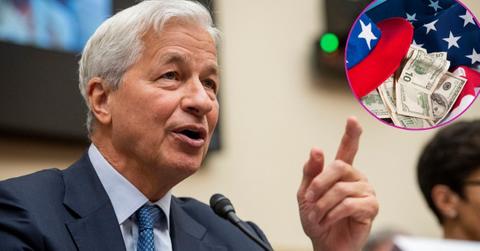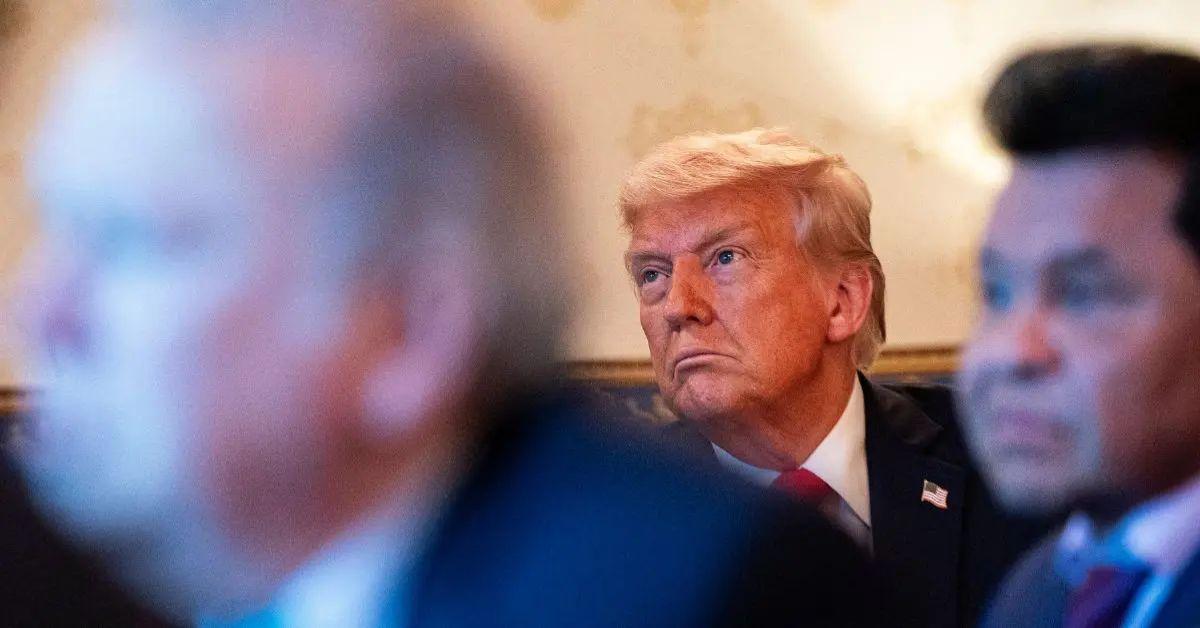 NEWS
NEWSJPMorgan's Jamie Dimon Sounds Alarm: U.S. Economy on the Brink of Deterioration

JPMorgan CEO Jamie Dimon warned the public that the U.S. economy could worsen amid financial uncertainty.
July 6 2025, Published 2:00 p.m. ET
In a striking revelation during a recent conference, Jamie Dimon, the chief executive officer of JPMorgan Chase & Co., cautioned that the U.S. economy might be teetering on the edge of a downturn.
Highlighting the diminishing effects of pandemic-era government spending and monetary policy, Dimon warned that the nation's economic stability could soon be compromised.

Jamie Dimon is the longtime CEO of JPMorgan Chase.
During a Morgan Stanley conference held on Tuesday, May 15, in Paris, Dimon stated, "I think there's a chance real numbers will deteriorate soon."
This assertion comes amid ongoing discussions regarding the sustainability of the existing economic growth, which has been buoyed by consumer spending and employment gains throughout the year, despite waning confidence among consumers and business leaders.
As reported, the recent economic landscape has been characterized by a blend of improving employment rates and consumer expenditure.
Still, survey data reveals a troubling decline in confidence, coinciding with the impacts of the Trump administration's tariff policies. Dimon was quick to downplay the implications of the survey results, asserting that "neither consumers nor businesses ever pick the inflection points."
However, he also suggested that the anticipated "soft landing" of the economy might not appear as favorable as previously thought.

President Donald Trump used tariff laws to pressure trade partners and support U.S. industries.
The head of JPMorgan remarked, "Employment will come down a little bit. Inflation will go up a little bit. Hopefully, it's just a little bit."
This prediction echoes broader concerns regarding economic sustainability, particularly as immigration levels remain low, further complicating the economic recovery trajectory.
Dimon, who has served as CEO of JPMorgan since 2006, is not new to expressing caution regarding economic conditions. His earlier warnings have often been seen as prescient amidst fluctuating market conditions. This time around, his insights resonate amid signs of slowing job growth and inflation data, particularly in May.

Jamie Dimon warned the public that the U.S. economy may face serious challenges ahead.
Want OK! each day? Sign up here!
One area that Dimon underscored was private credit, an increasingly robust sector on Wall Street. He explained the dual risks involved: while banks typically manage these deals and transfer them off their balance sheets, investors seeking long-term returns face a unique set of challenges.
"Do I think that now is a good time to buy credit if I was a fund manager? No. I wouldn't be buying credit today at these prices and these spreads," he cautioned.
Dimon's words have sparked significant dialogue among economists and analysts alike, who are grappling with mixed signals emanating from various facets of the economy. The juxtaposition of continued employment growth against a backdrop of faltering consumer confidence poses critical questions about future economic resilience.
The situation is further exacerbated by external factors such as geopolitical tensions and ongoing supply chain challenges, which have contributed to rising prices and inflationary pressures. Market observers are acutely aware of the balance the Federal Reserve must strike as it navigates these complexities while formulating monetary policy to stabilize the economy.

The coming months may decide if the U.S. avoids a downturn or slides into recession.
In light of Dimon's sobering remarks, many economists are evaluating the potential ramifications on consumer behavior and business operations moving forward. The prospect of an economic slow down raises concerns about job security and corporate profitability, igniting fears of a recession that could impact millions of American households.
As Dimon's warnings echo through the financial community, investors and policymakers alike find themselves at a crossroads, weighing the implications of a deteriorating economic landscape. The forthcoming months could prove pivotal in determining whether the U.S. economy can avert an inevitable downturn or if it will indeed succumb to the deteriorating conditions outlined by one of Wall Street's most influential figures.


